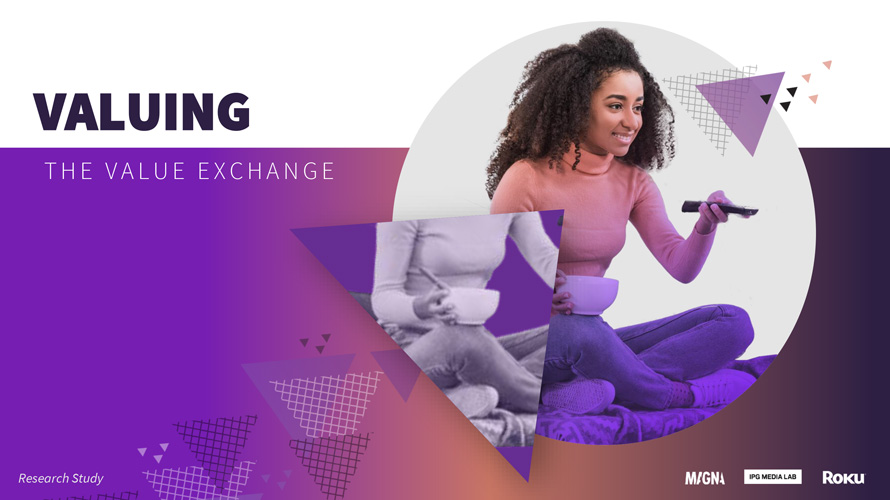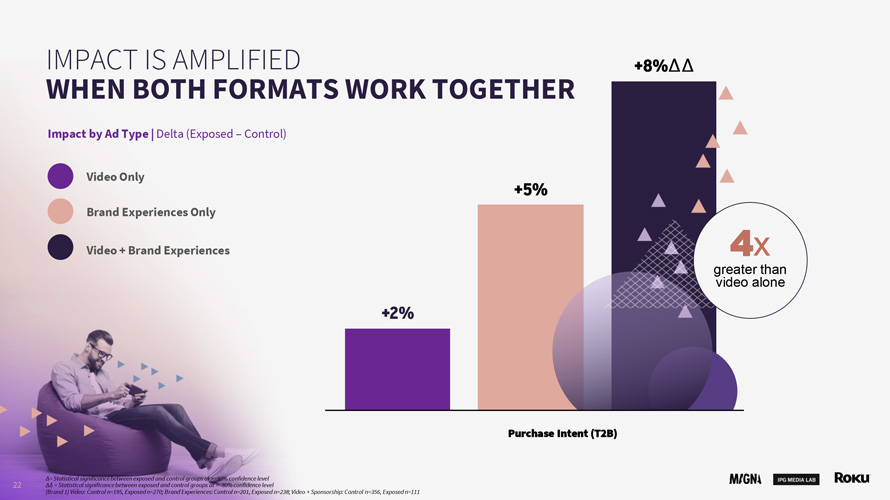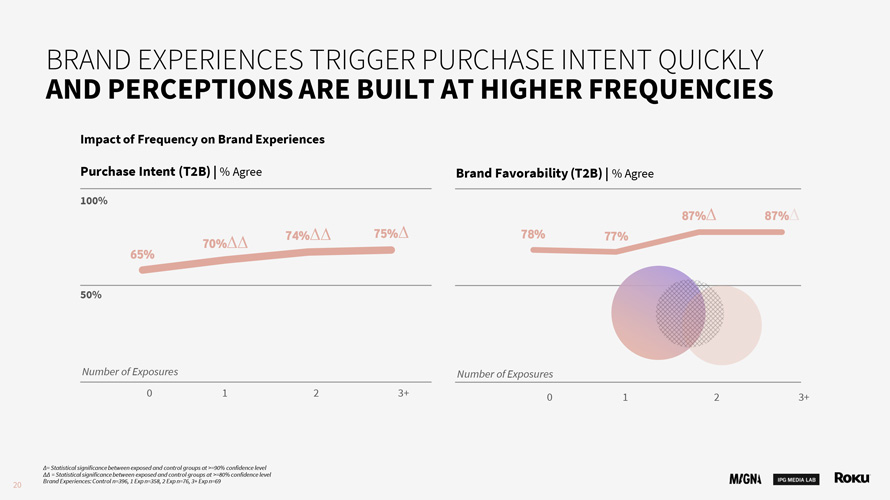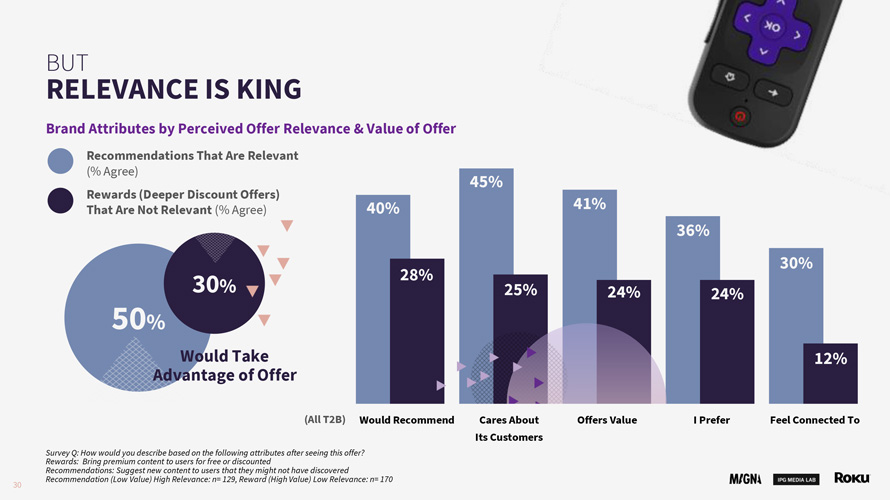By Mónica Marie Zorilla. Published by Adweek on 10 September 2020.
Giveaways and recommendations help drive brand awareness

Connected TV usage among consumers has been sky-high through the Covid-19 pandemic, but many viewers are still struggling to find what to stream. That dilemma can become a brand marketer’s goldmine if they prioritize brand experiences that encourage content discovery, according to new research.
The study, from Magna and IPG Media Lab and commissioned by Roku, found that video advertising and brand experiences that offer free streaming choices, like promo codes and free movies, together generate four times greater purchase intent than video advertising alone.
Purchase intent can be particularly valuable for marketers who are considering leveraging brand experiences that aid in TV streaming content discovery—especially as sponsorships for live events and sports remain limited, said Dan Robbins, vp of ad marketing and partner solutions at Roku.
“A key question for CMOs and marketers is how to go big with the $12 billion spent on TV sports advertising,” Robbins told Adweek. “Brands can differentiate themselves by stepping in to aid content discovery and drive value as streaming surges.”

The study, over two phases in late 2019 and May 2020, relied on 2,300 respondents who were asked about brand experiences (and how they compare to other ads), how consumers felt about ads that helped them with content discovery while browsing streaming apps, and what advertisers could do to make brand experiences more effective.
A major challenge for many viewers was content discovery: 54% of those surveyed had no idea what to stream.
Nearly one-third of consumers surveyed said brand experiences that offer value—like free programming—are more fun than traditional ads, and one-quarter said those brand experiences don’t feel like a typical ad. However, only 6% said brand experiences were less intrusive than most ads.
Among respondents who had interacted with brand experiences, 48% said they were more appreciative of brands that serve experiences, and 33% are more likely to consider buying the advertised products. Streamers with more frequency on branded experiences reported higher purchase intent (75%) and brand favorability (87%)—which researchers said indicates that consumer satisfaction with brand experiences drive positive opinions and build brand equity.

The study also found that both video advertising and brand experiences have an immediate impact on awareness, noticeability and memorability. However, both types of ads are persuasive in different ways: Video ads more often led to improved opinions on brands, while brand experiences were more likely to trigger purchase intent and favorability.
Relevancy, though, remained key. Nearly two-thirds of respondents surveyed in May were more likely to take advantage of a brand experience when the offer was relevant, whereas only 23% were likely to take advantage if the offer was not relevant. The study found that 50% of respondents would rather take advantage of a brand experience that was relevant but only offered recommendations on what to watch, compared to 30% of respondents who would rather take advantage of a brand experience that was irrelevant but offered premium content for a bargain price.

“In the end, relevance is king,” said Kara Manatt, svp and group director of intelligence solutions at Magna. “We found that it was more critical for a brand to deliver a content offer that consumers deemed relevant than to deliver a deeper discount offer that the consumer found irrelevant.”
Relevancy also affected consumers’ favorability of brands. Consumers were 31% more likely to think a brand cares more about its customers when the offer was relevant to them (compared to 18% when the offer was not relevant), and consumers are 30% more likely to find a brand more engaging if the offer is relevant (compared to 22% when it was not).
“Based on previous studies, we know that consumers tend to respond more favorably to personalized ads that cater to their interests,” said Chad Stoller, evp and managing partner of IPG Media Lab and global chief innovation officer at UM. “Offering up curated brand experiences alongside content discovery is a huge opportunity for brands looking to reach new audiences and convert them to longtime customers.”
